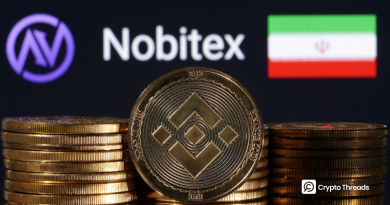South Korea to Allow Free Crypto Trading for Non-Profits and Exchanges in June 2025
South Korea’s Financial Services Commission introduces new guidelines permitting regulated cryptocurrency trading for non-profit organizations and exchanges, enhancing market transparency while preventing conflicts of interest.
Key Takeaways:
- Non-profit organizations can establish dedicated crypto trading accounts starting June 2025
- Exchanges can sell digital assets under strict regulatory conditions
- New framework aims to prevent money laundering and promote transparent donation practices
- Trades limited to top 20 cryptocurrencies by market capitalization
New Regulatory Framework for Cryptocurrency Trading in South Korea
In a significant development for South Korea’s cryptocurrency landscape, the Financial Services Commission (FSC) has finalized draft guidelines that will permit both non-profit organizations and virtual asset exchanges to freely trade digital assets beginning June 2025.
The policy, which was approved during the fourth Virtual Asset Committee meeting in Seoul, represents a balanced approach to streamlining corporate involvement while strengthening user protection against market manipulation and irregularities.
“In the case of the guidelines for the sale of virtual assets by nonprofit corporations receiving donations and sponsorships, it was decided to focus on establishing a sound donation culture and preventing money laundering through discussions with related organizations and expert task forces,” the FSC announced in its official statement.
Regulations for Non-Profit Organizations
Under the new framework, non-profit organizations in South Korea will be authorized to:
- Establish dedicated virtual asset trading accounts
- Accept cryptocurrency donations with proper oversight
- Form internal Donation Review Committees to assess the appropriateness of donations
To maintain transparency and prevent potential abuse, donations will be restricted to virtual assets traded on at least three major Korean won (KRW) exchanges. Additionally, non-profits must convert received cryptocurrencies to cash immediately upon receipt, ensuring liquidity for their intended charitable purposes.
Exchange Trading Guidelines
Cryptocurrency exchanges will also benefit from the new regulations, gaining permission to sell virtual assets under the following conditions:
- Only registered virtual asset business operators will be eligible
- Sales strictly limited to covering operational expenses
- Trading confined to the top 20 cryptocurrencies by market capitalization across five major KRW exchanges
- Daily sales capped at 10% of total planned sale amount
- Prohibition on selling cryptocurrencies on their own platforms to prevent market manipulation
Enhanced Transparency Measures
The FSC’s guidelines emphasize transparency and accountability through several key requirements:
- Exchanges must implement robust internal controls
- Board of directors’ approval required for virtual asset sales plans
- Mandatory advance disclosure of planned cryptocurrency sales
- Detailed post-sale reporting on results and fund utilization
“We plan to establish customer verification measures for virtual asset transactions between nonprofit corporations and exchanges in May,” the FSC noted, highlighting its commitment to maintaining market integrity.
Future Developments in South Korean Crypto Regulation
The commission also confirmed its roadmap for the next phase of corporate integration into the cryptocurrency ecosystem, with plans to announce real-name account issuance for listed corporations and professional investors in the second half of 2025.
These developments position South Korea as one of the leading countries implementing structured regulations for cryptocurrency trading, balancing innovation with consumer protection and market stability.



